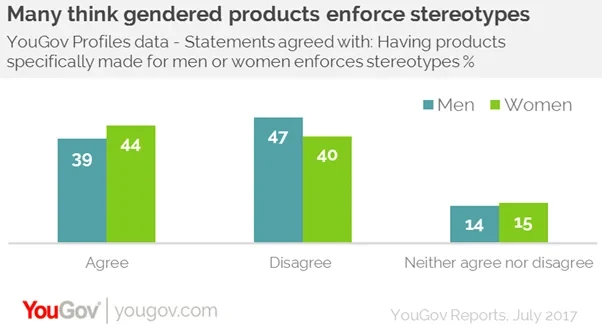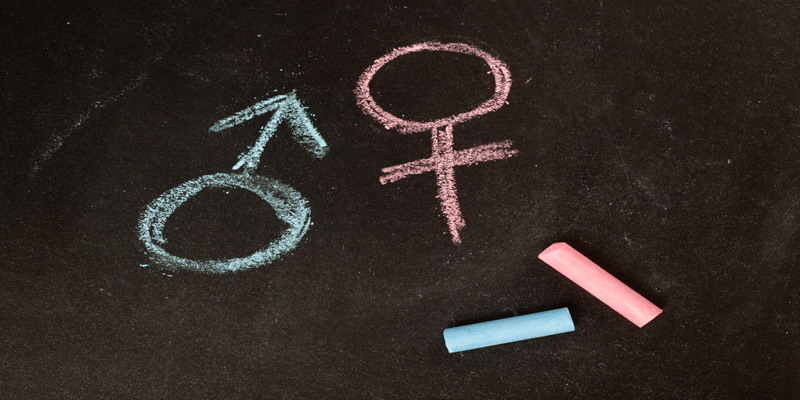Clarks’ naming a line of shoes for boys “Leader” and a line of shoes for girls “Dolly Babe” has led to fierce criticism from some quarters.
While it is too early to say whether this will lead to any dent in the public perception of the brand, we can see what our data shows us when it comes to how consumers feel about gender issues when it comes to brands.
On one hand, a large number of consumers take an interest in gender issues. YouGov Profiles data shows among those that like Clarks, a majority (56%) believe that in the 21st Century people should accept that there are more than two genders and almost half (49%) say that it is perfectly normal if a man wears women’s clothes or vice versa (against 45% of the public). Furthermore, over a third (35%) say that they only buy from companies that have ethics and values they agree with (compared to 31% of the public).
Further evidence comes from last year when in November YouGov BrandIndex measured the success of a Smyths Toys advert that took a bold approach to gender issues. In the ad, a young cartoon boy sang his own version of Beyonce’s ‘If I Were a Boy’ and culminated in the boy being dressed as a queen in a pink dress, waving to his subjects from a castle. The campaign achieved fantastic cut-through – with Smyths’ Ad Awareness score jumping by 16 percentage points during its run, which in turn had an impact on the overall perception of the brand.
However, it may be that many are unmoved by Clarks’ gendered shoe news story. Our new Attitudes Towards Equality and Gender Stereotyping report indicates while in women in general are more likely than men to believe that gendered products have the effect of reinforcing stereotypes (44% vs 39%), this is especially true among younger women. Over six in ten (61%) of women aged 18-24 believe products specifically made for men and women enforce stereotypes, compared to 42% of men aged 18-24. Older people are less likely to agree, with 38% of women and 35% of men aged 55+ believing that gender specific items reinforce stereotypes.

Looking at the vast majority of brand crises that YouGov has studied, it is often the case that lasting damage is done when a brand fails to measure the public mood quickly. In this instance, Clarks has now removed the “Leader” and “Dolly Babe” lines from its website and apologised ‘for any offence caused’.
Given what we have measured when other brands are at the centre of a public furore, it is likely that Clarks will recover relatively quickly from the fallout from this story.
Image: Getty







